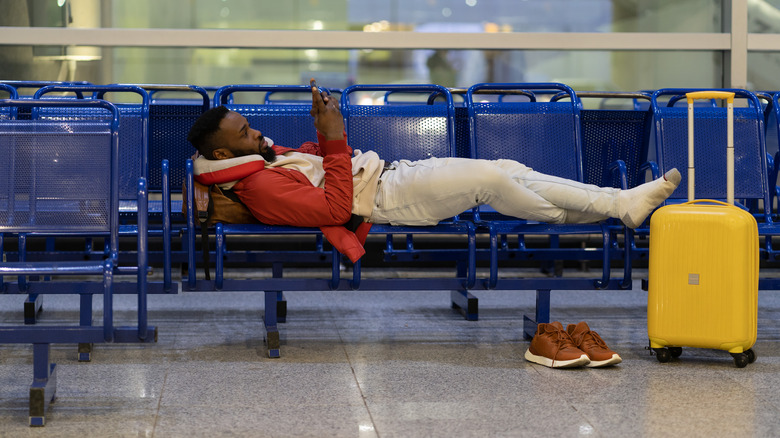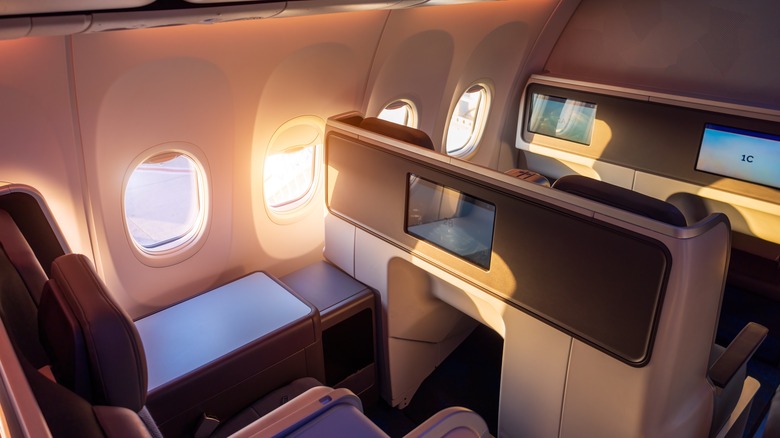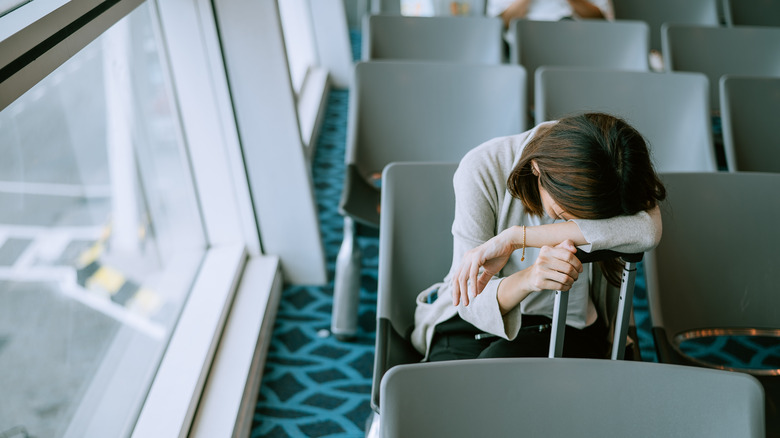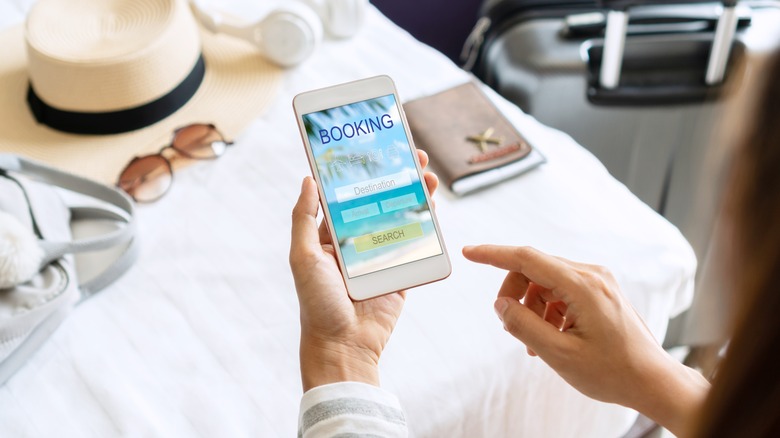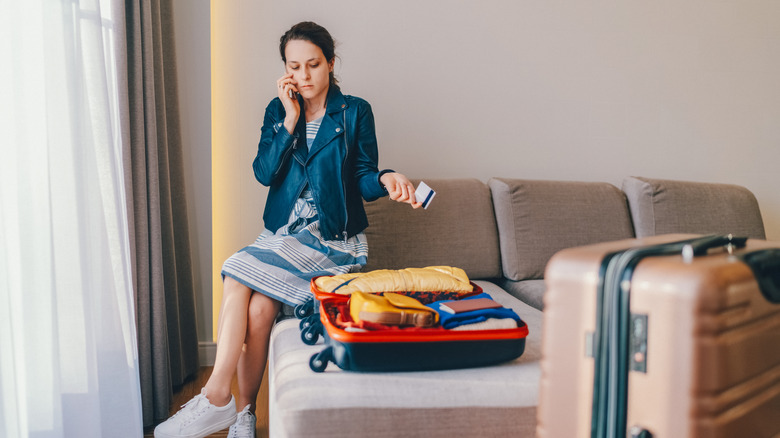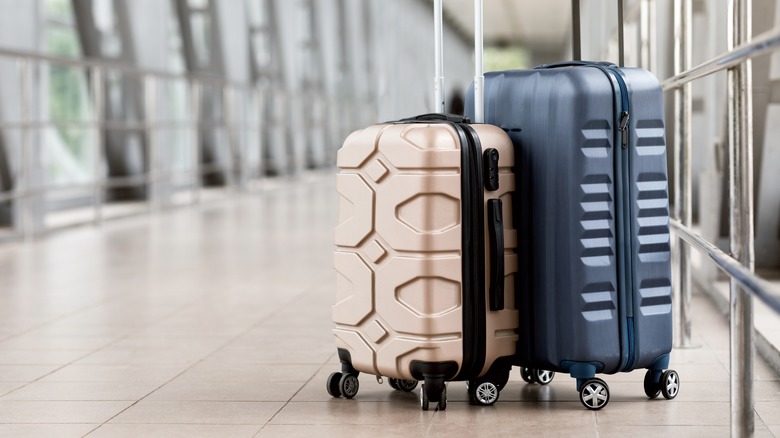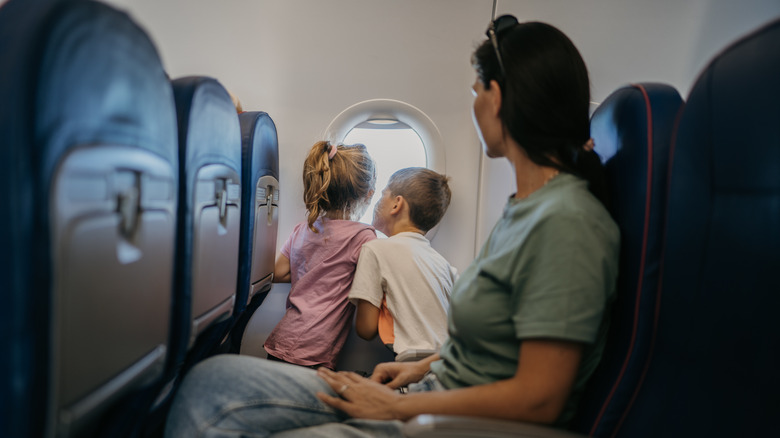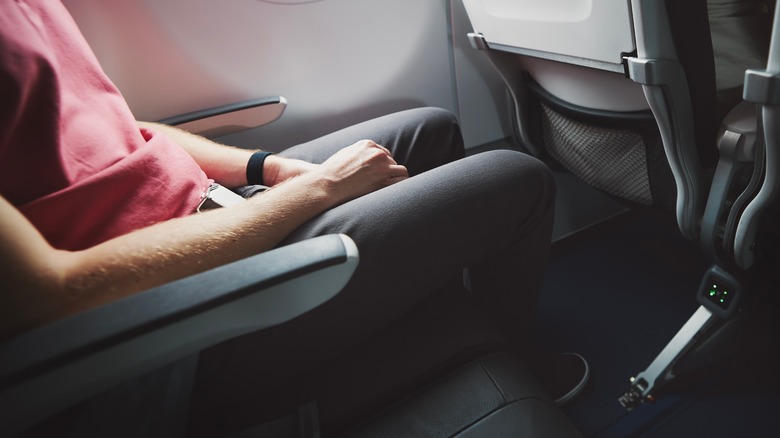Money-Wasting Mistakes Everyone Makes When Booking Travel
Always check flights in incognito mode so airlines can't track your flight searches. Always book your flights on a Tuesday. Booking with Google Flights gets you the cheapest fares. Travel hacks like these all get passed around so much that they seem to be ancient wisdom, and there's a good chance you've tried at least one, hoping to eke out a slightly better deal. But they are primarily just myths. Travel agencies don't check your browser cookies before giving you a price, booking trips on a Tuesday won't get you a meaningful discount, and Google Flights can't wrangle you a better deal than the airlines it aggregates.
The cold, hard reality is that no secret trick will allow you to swindle multi-billion-dollar airlines out of their money. If there were a way to pull a cheap fare off their websites like a rabbit out of a hat, they'd lock it down long before it made its way into a travel blog post. What you can do, however, is avoid all the common mistakes people make when booking. Mistakes that may cost you only a few dollars extra or, in some cases, hundreds.
Booking overnight layover tickets
If we're being frank, the cheapest tickets are the ones that suck the most. These are tickets heading out during the graveyard shift, fares that force you to transfer from one airport to another for your next leg of the journey, and those with long overnight layovers. The latter, in particular, are often much cheaper than those with a typical two or three-hour layover. You grab one of these flights thinking you'll spend a night in that city, get some shut-eye, and then rise and shine for the next segment of your trip.
While nice if you're looking for a slower travel pace, this approach probably won't save much money. You'll need a place to sleep. Airport hotels tend to be expensive, forcing you to eat the cost or book one outside the airport. The latter adds the extra expense of transportation to and from the terminal. Tack on the price of a meal or two, and things are already starting to look worse than if you'd bumped up to a fare with a shorter layover.
Intrepid globetrotters may wish to sleep overnight in the airport, but airport furniture is not made for you to sleep on, and in many cases, it's meant to prevent that. You'll have to risk a stranger going through your bags while you're lights out. Then there's the possibility that the secure area closes at night, forcing you to rest in the busier section ahead of security. It's possible, but know it won't be fun.
Flying to nearby destinations
Flying is preferable to driving in terms of time saved. Aside from the discomfort of airplane seats and baggage limitations, there's no car to worry about leaving parked and no gas prices to contend with. That said, flying to a nearby destination may not be worth it. Take, for example, a flight from Phoenix Sky Harbor International (PHX) to San Diego International (SAN). It would cost you an average of $200 for one person round-trip, whereas a six-hour drive would cost almost half as much. Add your partner plus a kid, and the savings are even more apparent. Convenience may not be able to beat a more extended road trip.
Driving is often cheaper than even the longest flights, assuming you don't luck out on a major, discounted fare. A car trip from Phoenix to New York City still costs less than flying. Naturally, most would opt for a four-hour flight over a day and a half behind the wheel. So the tip here is this: if the destination is within a few hours from home, and your schedule allows for it, consider turning your journey into a road trip. Savings aside, you'll have a lot more space for baggage, a more flexible itinerary, better at-destination transportation (your car), and the possibility of hitting a bunch of popular stops along the way — i.e., a classic American road trip you should take before you die.
Overspending on accommodations
Hotels try very, very hard to be a destination at your destination, but let's be honest here: a hotel is a glorified place to sleep. All the best parts of your trip will likely be beyond its premises. Despite this fact, you'll find some remarkably enticing hotel upgrade options. Complimentary meals, spa access, massage services — the list goes on. Unless you plan to spare no expense and live like a sheik, the cheapest accommodation money can buy serves the same general purpose (a place to rest your head) and leaves more in your wallet for vacationing outside its doors.
We recommend experimenting with cheaper hotel alternatives. Airbnb has fallen out of favor in recent years as it concerns cost savings, especially for shorter stays and smaller groups, but still has the occasional worthwhile deal. If vacation rentals don't work for you, hostels and bed and breakfasts present options to stretch your dollars further. Think of it this way: when looking back on your vacation, you'll have tons of memories of the things you did at your destination and few of the places where you slept.
Not using credit card rewards
If you love traveling but don't have a travel-focused credit card, you are seriously missing out. It's effectively a free money hack; use it to pay for your everyday expenses, accumulate miles, and redeem those miles for flights and accommodations. Many credit cards offer welcome bonuses; if you spend a certain amount (typically about $4,000) within the first three months of owning the card, you receive tens of thousands of miles in return. Then, you can redeem those miles by booking through your credit card company or claiming a card purchase when it clears. Depending on your card, you could knock off about $750 with those introductory rewards alone.
Credit cards usually work by a system of 2-10x miles per dollar you spend. So, $100 of groceries could earn you about 200 miles. Depending on your card, ten thousand miles adds up to about $100 in deducted travel costs. Some cards offer beneficial little perks like access to their exclusive airport lounges and no foreign transaction fees. We recommend using a travel card for everything you usually have to buy: groceries, housing costs, car payments, and anything you can pay with plastic. You'll easily rack up hundreds of dollars worth of travel rewards over a year of everyday expenses. Just be careful with the temptation to overspend; unnecessary credit card debt turns this potential boon into a burden.
Not collecting frequent-flyer miles
Do you fly a lot, particularly on a single airline? You've undoubtedly been bombarded with advertisements about the airline's frequent-flyer program. At first glance, it might seem like the reward program at a retailer or a grocery store — a few minuscule benefits that aren't worth the effort it takes to sign up for them. When it comes to airlines, though, you really ought to reconsider. Frequent-flyer miles can get you free flights, baggage, and seat upgrades to a better cabin class.
Frequent-flyer programs are free to sign up for, and they make check-in a bit easier since they save all your info for future flights. Paired with airline credit card points, you get the card benefits and all the accumulated miles. Even if you fly infrequently on an airline, it doesn't hurt to go the extra mile (pun intended) to sign up. Some airlines, such as Delta and JetBlue, have miles that never expire, and some don't expire if you use their credit card. You could gather them for years at a leisurely pace and cash in when you have enough. After all, you earn miles by flying, something you'd be doing already.
Taking long vacations
Most people only have about two weeks of PTO, making it tempting to go all out for their sanctioned yearly trip. Time's a-wastin', so every red second you can spend with toes in the sand is sacrosanct. However, consider a few things before you book a bombastic round-the-globe trip. First, every additional day of your vacation costs you hundreds of dollars. Your hotel nights and meals add up fast, even for a small family. The bigger the vacation, the bigger your heart attack when you see the final bill.
That part's obvious, but the second component is why we recommend shorter vacations: long vacations are exhausting. Think back to the last time you spent just four or five days out of town. As fun as it was, you probably crawled into bed as soon as you got home. Travel is wonderful, don't get us wrong, but it's hard to enjoy it once you hit zombie-mode energy levels. Trimming down your vacation by a few days maximizes enjoyment and helps to save a ton of money when booking.
Skipping travel insurance
Travel insurance is much like a phone protection plan; we all know we should get one, but we pass it up in favor of savings. Statistically speaking, your phone — or trip, for that matter — is unlikely to get ruined in a catastrophic way that would require insurance reimbursement. We're gambling, hoping luck will favor us for our yearly getaway. Unfortunately, the risks of that gamble are growing exponentially in size. We're in for a decade of above-average airport delays, and there are murmurings of pandemic resurgence. Travel is still immensely chaotic and thus prone to vagaries like canceled flights that strand you abroad, or worse. Going without insurance puts you at the mercy of a trip gone wrong and could sink you into hundreds or thousands of dollars worth of debt to remediate things.
Look, there's no denying that insurance is, in most cases, a racket. But you can get travel insurance for just a few dollars a day that will cover medical emergencies, stolen belongings, rental car collision coverage, and much more. It's an affordable, viable alternative to those exorbitantly expensive airline protection plans and covers more than they do. There are a ton of companies to choose from, many of which offer cheap, bare-bone plans for the most basic safeguards. Just avoid buying travel insurance at the last minute.
Booking without checking both direct and third-party options
There's a good chance you do all of your bookings through a third party, also known as an online travel agency (OTA). These are websites like Booking, Expedia, and Trivago. They provide intuitive user interfaces that make searching for flights and hotels easy and painless. In some cases, you might find a fantastic deal on Skyscanner that doesn't appear on Google Flights, so there's an incentive to check them all for platform-specific savings. In some cases, though, booking directly can be cheaper.
There's rarely any benefit to booking directly with an airline. The prices will be more or less the same, albeit the airline will aggressively sell all its add-ons — better seats, extra bags, flight protection, etc. However, you should head straight to the website — not a third party — if you have frequent flyer miles to use. Hotels, on the other hand, give reasons to go with direct booking. Aside from the rewards programs hotels have, there's a chance to reserve upgraded rooms or get amenities packages for cheaper. Additionally, you may not receive your loyalty points (or frequent flyer miles) by booking with a third party. Always compare prices between the company website and an OTA in either case; a flash deal or mega-cheap last-minute booking could make the OTA the winner.
Booking too late (or too soon)
There seem to be two prevailing myths about when it's best to book a flight or hotel. One is booking months in advance, and two is booking within a week of a flight. Neither of these is particularly effective. Last-minute "hail mary" flights are highly unlikely to result in any deals. On the contrary, you might spend upwards of $220 extra. Discounts only appear for an undersold flight, which is increasingly rare these days and likely to result in a cancelation. Don't hang your hat on this strategy.
Surprisingly, booking super early doesn't net you any particular benefits, either. Booking around a year in advance could actually make your flight about $50 more expensive. Even as early as 165 days, booking can cost $20 more than the lowest low. According to Investopedia, the prime booking window is between 46 and 164 days ahead of your flight. Hotels are likelier to have worthwhile deals outside the prime booking window than flights, especially hail-mary deals. We recommend signing up for flight notifications on your favorite OTA or flight aggregator like Google Flights to get an email when a particular flight changes price. Check those prices against annual flight cost averages to determine when to pull the trigger on a good deal.
Not booking baggage ahead of time
Air travel has changed a lot in the past 20 years, especially with how airlines keep turning the screws on the average consumer to make more money. Our younger readers may not remember a time when the security theater that is the TSA didn't exist, and you only had to pay for a checked bag if it was overweight or you had more than two. That's right, two checked bags were free once upon a time. In the current year, you're lucky to get that on a long-haul international flight, much less a domestic one. Unless you can cram vacation essentials into a carry-on, you will need at least one checked bag.
You can save a bit of money just by nabbing that baggage deal early. Many folks buy it later, usually once they get to the airport. Airlines are playing a careful aircraft balancing game with their onboard weight, which is part of why they nag you to buy checked bags early. They jack up the prices the closer you get to departure. Using United Airlines as one example, your first checked bag costs $30, and your second costs $40, provided you buy them 24 hours before your flight. Less than 24 hours before your flight (online or at the airport), the price goes up $5 a pop. Some airlines charge even more. It's not a tremendous amount of money, but every cent counts on a tight travel budget.
Paying extra to book seating together as a group
Like checked bags, seat selection also used to be free and worked on a first-come, first-served basis. Nowadays, it's one of the most infuriating add-on costs we can think of. Seats with extra legroom, aisle and window seats, exit row seats, and others come at a wince-inducing premium. For long-haul flights, you might pay over $100 just to keep your knees from getting crushed by the reclining person in front of you. There are even airlines that make you pay to choose any seat at all — so you better hope you don't get assigned to the middle of the row. It presents a dilemma for traveling groups: how do you sit together without paying hundreds for the privilege?
First, book with airlines committed to "fee-free family seating." This is a growing list of airlines like Alaska and JetBlue that won't charge an adult and a child under 13 to sit together (via the U.S. Department of Transportation). Failing that, you can always ask someone if they'll switch seats with you. Many solo travelers are more than happy to do so, especially if the seat you're offering is better than theirs. Families with older teens might consider just sitting separately if it's a short flight and you can't sit together for free. You can link up later; you'd have probably been on your phones for the whole flight, anyway.
Booking better economy seat options
If it wasn't clear already, many people view airlines charging a premium for specific economy seats as a racket. According to the LA Times, this comes off as an insult to many passengers since they know airlines are actively shrinking the legroom to fit more seats on the plane. We recommend not buying into this business model, and not just because it will save you money. For starters, the extra legroom usually only makes a worthwhile difference if you're tall. For most, especially on a short flight, paying the additional fee to secure an hour or two of comfort is probably not worth it.
Another thing to remember is that airlines don't always succeed in selling these overpriced, "premium" locations. Many get no takers during the booking process. Show up at the airport as early as possible (whenever the check-in line opens for the flight), and you might have the option to choose one of those unclaimed seats – though still likely for a price. Or, you could book with an airline like Southwest. It doesn't have any pre-boarding seating assignments whatsoever. Seats are first come, first served, according to your boarding group. So get in line ASAP for the boarding call, and you'll have the pick of the litter. This strategy works great for sitting together as a traveling group, too.
Booking the cheapest flights possible
This one might seem counterintuitive. Add-ons aside, a cheap flight is a cheap flight. But if there's anything a traveler should know in this fee-laden travel age, it's that a good price comes with many caveats. Going uber-cheap is a popular flight booking mistake that might cost you more in the end. The number one reason is flexibility. Most of those barebones, "basic economy" tickets deprive you of the ability to cancel or change your flight. That means that if something comes up, you can kiss any refund goodbye.
Another downside is the lack of seat selection. Delta and United nix that benefit from their lowest ticket fares. You'd be at the mercy of the airline for your seating choice, and you'd probably end up in the hard-knock final boarding group. Frequent flyers might want to steer clear as well. Basic economy tickets are often excluded from collecting miles or given far fewer.
Last but not least, some of these cheap fares do not include baggage allowance. So, if you saved $50 on your flight, you might end up paying it back to check a bag later on. Research any flights well before you buy. An extra $50-100 is a small price to pay for something as basic as a free carry-on or seat selection.

